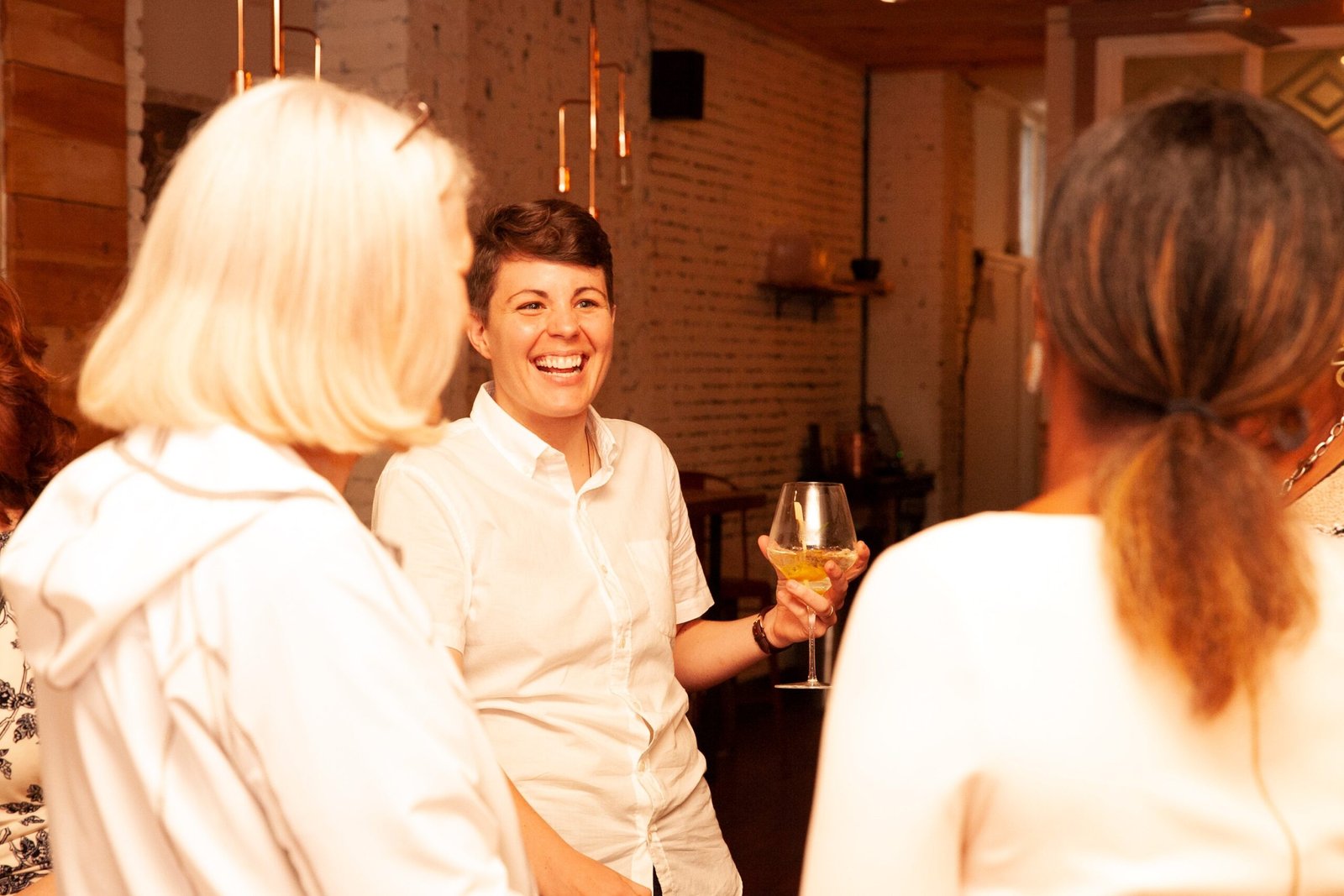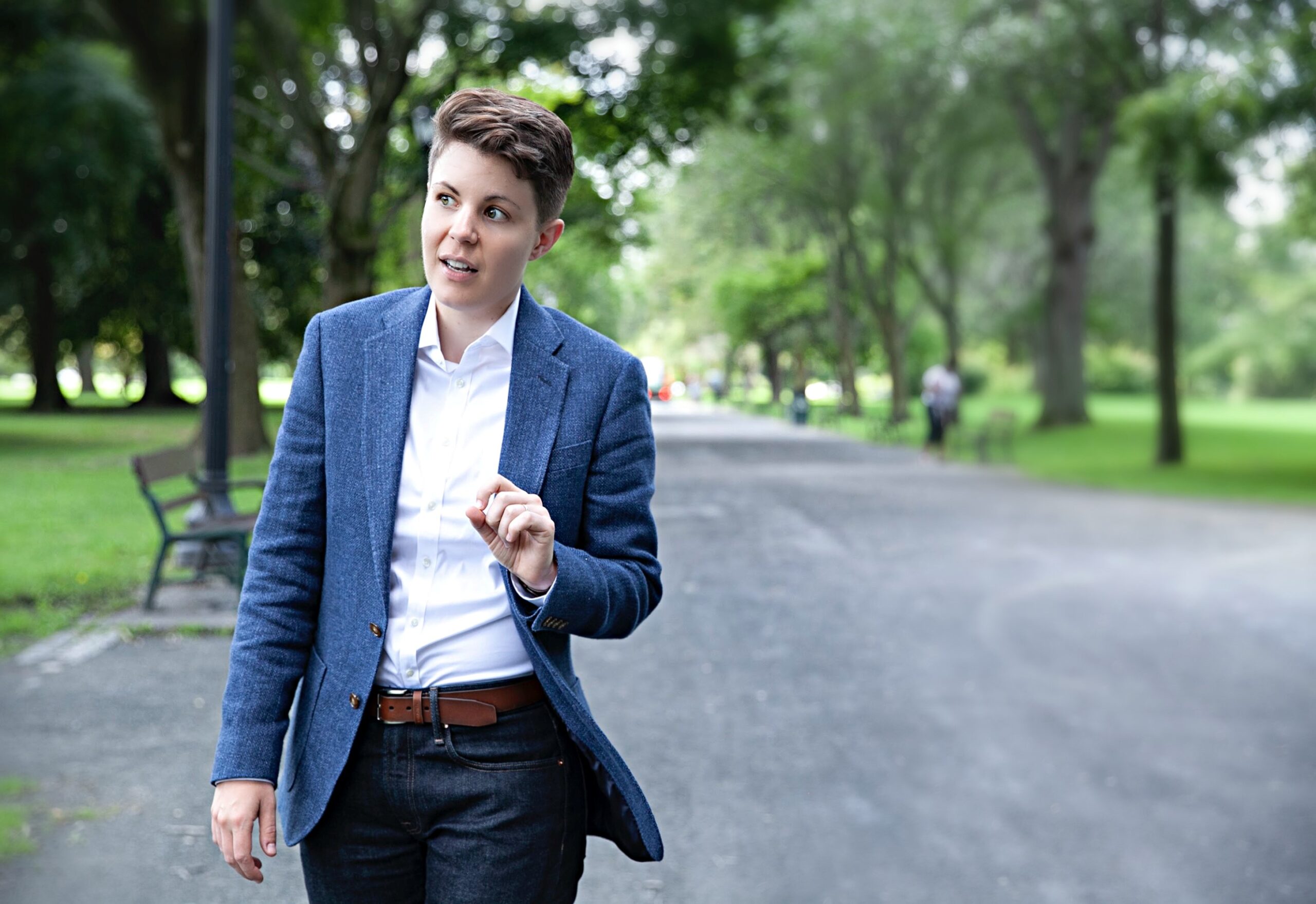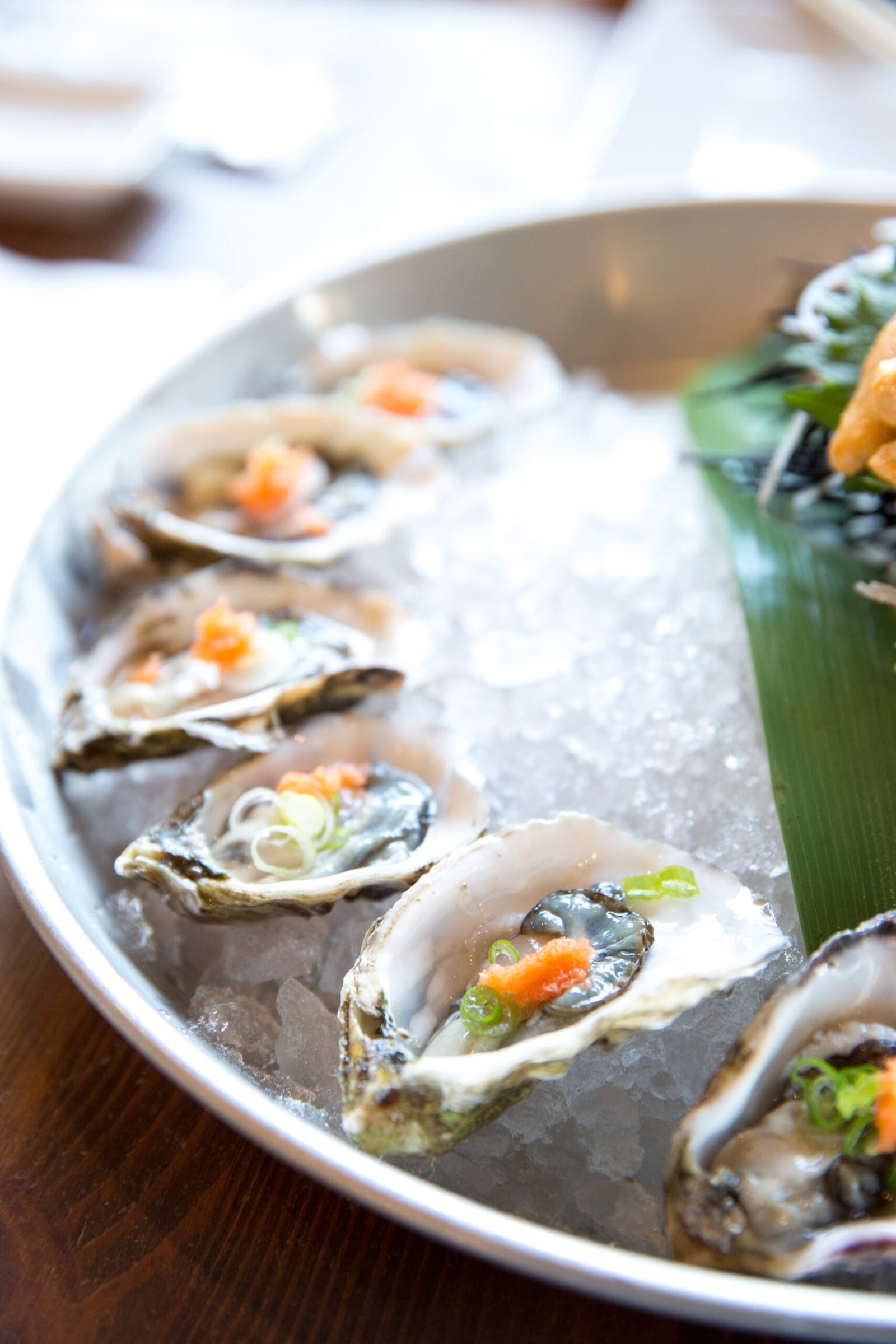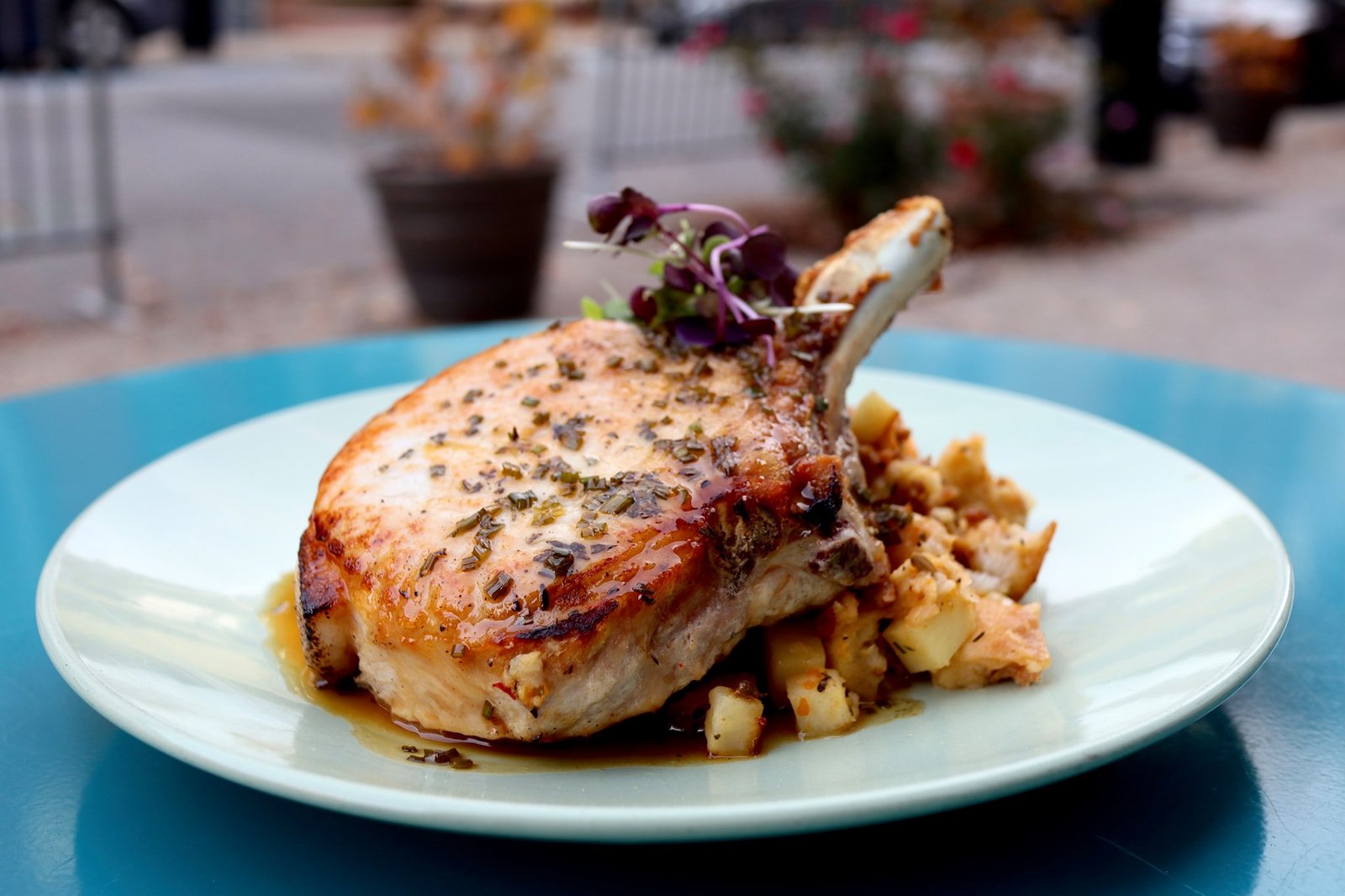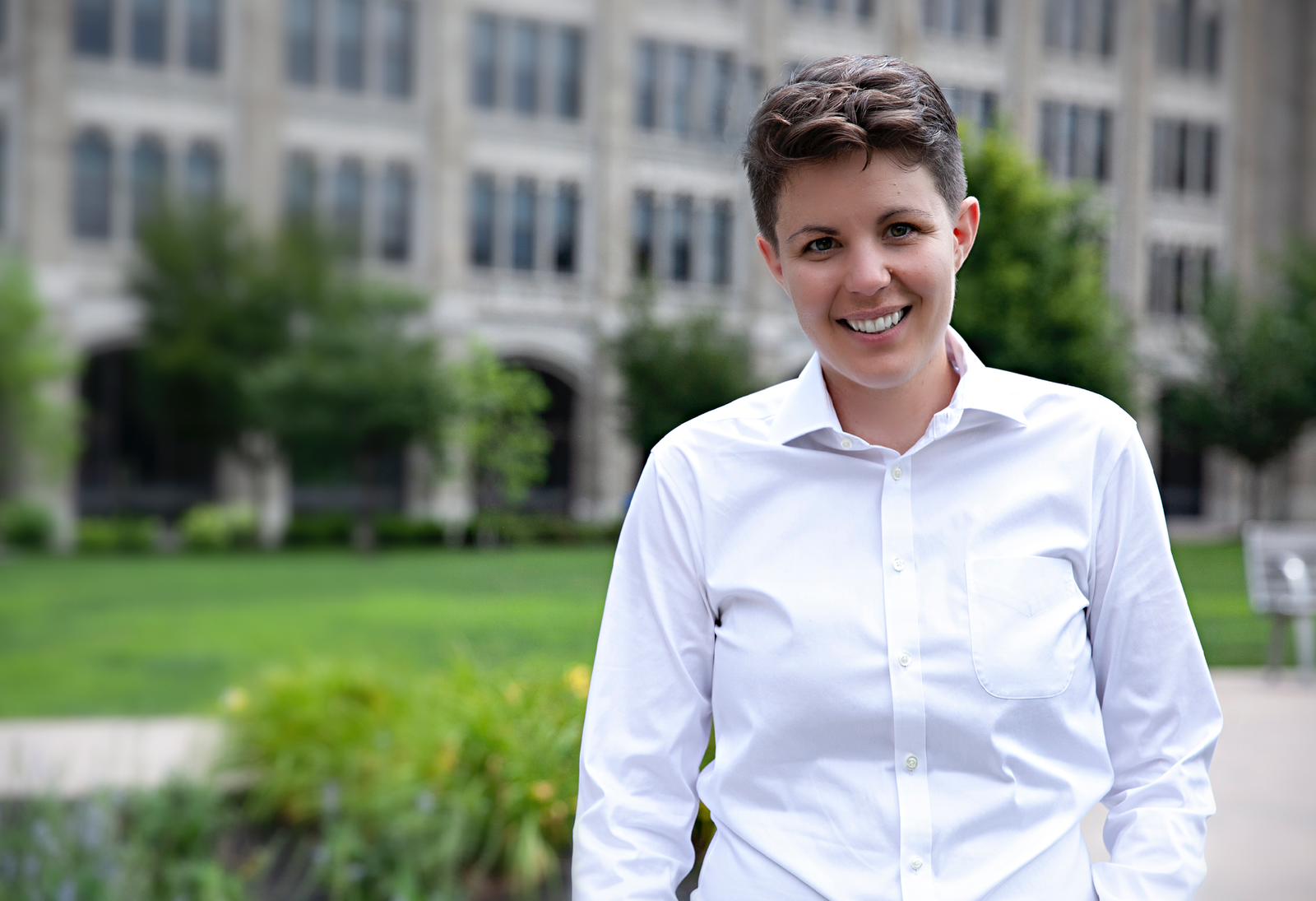
Heidi Knoblauch: From Academia To Entrepreneurship
Heidi Knoblauch is the owner of Plumb Oyster Bar based in Downtown Troy, New York, and the current Vice President of Asset Management for a rapidly growing real estate company.
Plumb Oyster Bar is located at 15 2nd Street, Troy, New York. Whether it’s date night or evening cocktails, expect to experience elegant, composed plates highlighting fine, global ingredients.
In this exclusive interview, Heidi shares her journey from academia into entrepreneurship and small business, touching on her inspiration behind Troy-based Plumb Oyster Bar.
Tell us about yourself and the work that you do.
People are always bemused by my background – I have a Ph.D. from Yale University in the History of Science and Medicine. I own a restaurant in a small town in Upstate New York. I started (and then stopped) a company that provided a simple technology for restaurants. Then, I went into banking and finance.
During my doctoral work at Yale University, I worked on a Ford Foundation project at the CUNY Graduate Center with JustPublics@365 to help academics translate their academic research to a wider audience. I continued this work at Bard College immediately after I earned my doctorate directing a new program: Experimental Humanities. Running the Experimental Humanities Program was, in and of itself, an entrepreneurial endeavor. From scratch, and with minimal institutional support, I developed courses and intensive workshops that melded the humanities with technology and used my position to create opportunities for students and faculty to learn how to integrate innovative technology into their humanities research projects.
An Upstate New York native, I returned to Albany in the summer of 2016 to be close to family. When my partner Kelly and I moved here, my intention was to commute to Bard College, continue to build my career as a scholar, and expand the digital humanities program I had helped create. However, after just a few weeks of walking around my new neighborhood, and seeing the revitalization of Downtown Troy, I saw an economic opportunity and opened Plumb Oyster Bar. This impulse may seem displaced from my academic motivations, but there are more similarities than differences.
Scholarship and entrepreneurship are alike in many ways. Both require ingenuity, creativity, and a fierce commitment to one’s own vision.
Plumb Oyster Bar is a small restaurant featuring cocktails and American cuisine. I opened it in 2016 and it was my first venture into business. It was definitely more like jumping off a cliff rather than wading in. I knew nothing about the restaurant industry and the first 18 months was like drinking from a fire hose.
By 2018, I had a problem in the restaurant: piles of paper receipts. Restaurants – mostly because of the tip line – are required to keep paper receipts for 18 months in case a customer initiates a “chargeback,” which is when a customer reverses a credit card charge. To address this problem, I created a system wherein restaurant owners could get rid of receipts by throwing them in a Tyvek envelope, sending them to us via mail, and then we would scan them and upload them to the restaurant owner’s portal. The software read the last four digits of the scanned credit card receipts and stored them so if a restaurant owner ever had a chargeback, they could find the receipt rather than spending hours looking for a piece of paper. I called the company Receipt HQ, Inc. After winning “Best Pitch” at an accelerator I received multiple offers for investment. Ultimately, my customer discovery – which I did through an NSF program called iCorps – made me realize that there was not a large enough market to continue to commercialize the product and I turned down the offers for investment. This, frankly, improved my relationships with those potential investors who told me to come back when I had my next product.
Starting Plumb Oyster Bar required quick, scrappy entrepreneurial skills and its success is in large part due to my determination and grit. This first entrepreneurial endeavor also exposed me to economic development in the region. I began to take on economic development projects with the Downtown Troy Business Improvement District, City of Troy, and eventually the Regional Economic Development Council. In 2018, the Mayor of the City of Troy appointed me to be the Chairperson of the Industrial Development Authority and Local Development Corporation. As Chairperson, I ran a small revolving loan fund and sought to create a larger seed fund and investor network that would invest in start-ups in the region. The focus of the fund was to support women and minority founders. The statistics around investment (broadly defined) in women and minority businesses were – and are – unacceptable to me.
Pioneer Bank was attracted to my diverse experience and recruited me to be the Venture and Growth Banking Relationship Manager in 2019. In my role at the bank, I have gained hands-on experience working with companies on the cusp of being “bankable” to secure financing through government-backed programs such as the SBA 7(a), SBA 504, and Main Street Lending Program. Working with these companies has given me exposure to the SBIR and STTR programs and structuring financing for new technology companies in conjunction with grant programs and equity investments. I have had the opportunity to work with SBDC on new technology companies, deepened my connections with venture firms, and worked with accelerators across New York State. Most of the clients I work with are scaling quickly and need help with either their business plan or presenting financial information. One of my strengths – and honestly, my favorite thing to do – helps clients plan for growth, connect them with partners, and give advice on how to secure and structure debt, equity, and grants.
How has earning your master’s and doctorate from Yale made an impact on your career now?
The transition from academia to entrepreneurship is a lot smoother than a lot of people would think. In academia, you have to find a way to contribute to the scholarship. That is the same type of thing you have to do as an entrepreneur. You have to take an evaluation of the landscape and find a way that you can contribute to the landscape.
Academia teaches you how to structure knowledge, how to think, and how to write. Plumb Oyster bar is applying those skills in a very fast-paced environment. That said, there are few academics that I know who could jump into a restaurant environment. The adaptability that a restaurant position requires is not a quality that academia teaches you.
What was the inspiration for the development of Plumb Oyster Bar?
When I was a kid, I lived in an area that only had one small convenience store. Warheads were really popular at that time, and I took all the money I earned detailing people’s cars and bought the convenience store out of Warheads – totally depleted the supply – so that I could sell the Warheads individually to kids on my school bus where there was certainly a demand.
Similarly, when an antique festival would come to town, I would sell water bottles for $1 to people waiting for the shuttle bus to take them back to their cars. I always knew I wanted to have a business. In fact, when I was applying to graduate school I remember thinking, “oh this will be good because applying for grants is like constantly re-positioning and inventing yourself – it is like you are your own business.”
Deciding to open an oyster bar rather than another type of restaurant was half a strategic business decision and a half because my wife loves oysters. My wife loves oysters and when we moved up to Troy from Brooklyn there was not a good place to get oysters. We loved Maison Premiere in our old neighborhood in Brooklyn and thought the concept would do well in Troy. Before I opened Plumb Oyster Bar, there was only one place in the area that served oysters. They only served them one night a week so, before I opened Plumb Oyster Bar, I went every night that the restaurant was open. I noticed that it was a lot busier the night that they served oysters. That solidified my plan to open an oyster bar.
Also, restaurants are really fun! People give restaurants a tough time because there is a high failure rate, but I bet the rate of failure on an app is much higher. People see restaurants failing because it is such a public business, but if you look at the rates of failure, they are lower than you would think.
How do you think the economy will benefit from your tech company, Receipt HQ?
Receipt HQ is an example of failing quickly. The market for the software I created was (is) shrinking so I decided to stop developing the product. Do not get me wrong, it is useful for restaurants that use paper receipts; however, the number of restaurants that use paper receipts is shrinking especially post COVID. There is an art to failing well and at the core is maintaining relationships and doing right by people who helped you whether that be employees, customers, or vendors. I won a couple of pitch competitions and got offers for investment. The people who wanted to invest in the product were grateful that I was honest with them and said that the return was just not there for the product.
What is a current challenge for you and how would you approach it?
I recently quit my job at the bank. I hear people say that you should have a job lined up before quitting your job. I do not believe that. Often, I hear this advice in the form of a metaphor: “You do not want to let go of one rung on the monkey bars before you are holding on to the next monkey bar.” There are certainly times when this is true, but there are also times when you just need to let go and trust that you will land on your feet. Continuing to use the momentum of something that is not working to get to the next thing is not always the best advice. Quitting my job opened opportunities that I do not think would have been there if I had stayed in my position. My new role is a Vice President of Asset Management for a rapidly growing real estate company.
What was one thing you did that exceeded your expectations when you began developing your business?
The emotional range that I experienced daily was not something that I fully prepared myself for before opening the restaurant. I could feel the lowest low and then the highest high all in a matter of a few hours. One thing I learned is you can always start your day over. There could be something terrible that happens like your dishwasher on fire at 1 pm because someone forgot to put the plugin in the basin and then you have someone get engaged in your restaurant at 6 pm because that’s where they had their first date. I think all entrepreneurs have these types of swings daily. You could pitch to one person in the morning, and they could tell you that your idea is horrible and then you could talk to a person later in the day and they could invest a couple of million dollars.
I rely on my inherent resilience, but something that I wish I better appreciated before starting the business is that there is a lot of emotion and if you do not take care of yourself and keep yourself spiritually fit, those emotions can eat you up.
What does success mean to you? What are your rules for success?
Feeling successful relies on making sure your values are aligned with the work you are doing and the people you are working with. The moment you have a hard time representing your work or the organization you are working with was the moment I realize I cannot find success in my position.
How do you handle comparisons between your innovations and that of other companies? What is one way you continue to distinguish your businesses and stand apart?
It’s the simplest thing. The difference between me and my competitors is that I ask people what they want before I spend a bunch of time on research and development. It’s that simple. Before putting something on the menu at Plumb, I ask people if they would buy it for X price. Before making a change in my career I check in with the people around me. Really before doing anything, I float it past people. I think that some people are scared to do that because they are worried their idea will be stolen by a competitor, but something I learned in academia is that only 1% of people actually do something with their idea.
It’s all in the execution and it’s important to know people’s opinions before you fully build something out. I save myself a lot of time and money by having conversations with people.
The Fox Magazine is all about inspiration, what/who inspires you the most?
The resilience of restaurant workers during the pandemic has been the most inspirational thing I have ever seen in my career. I watched my team pivot and change course more times than I can count. The community of restaurant workers was inventive and resilient. Forever, I will remember my team putting together the COVID-19 Cocktail Club and the “Go Shuck Yourself” oyster special. Restaurants are magical because of the employees that work in them, and it was nothing short of magical that so many restaurants made it through the pandemic.
How do you plan to continue using your advocacy for the LGBTQ to make an impact among different businesses?
Companies need to start looking at their LGBTQ employees as true stakeholders, giving them positions of influence and the opportunity to shape their companies. Diversity is critical to building sustainable companies and that companies can strengthen their position in the marketplace by, for instance, diversifying their boards. I think companies that do not get this will lose any competitive advantage they have very quickly. I advocate for LGBTQ people in rooms where companies are making hiring decisions and deciding who to appoint to boards. I recognize that my ability to be in those rooms was in large part given to me by the first brick thrown by a Black trans woman at Stonewall. I am a palatable version of diversity in those rooms, and I view it as my responsibility to continue to advocate for a broader swath of the LGBTQ community.
What are some current goals that you have for yourself and how do you plan to reach them?
I want to join a corporate board. I approach this goal the same way that I approach most things: I talk to people and ask them for advice. There are ways to prepare for joining a corporate board by reaching out to organizations like the National Association for Corporate Directors and I am taking those steps too, but primarily, I am just asking people what they think of me joining on board.
